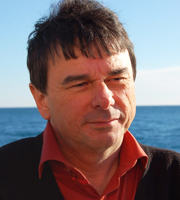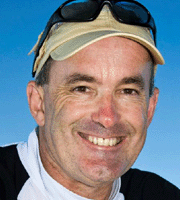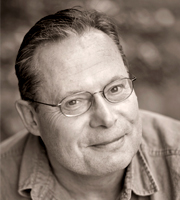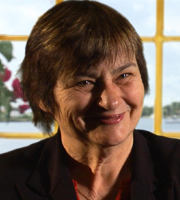

This edition... You have just 1 week and 1 day to submit your abstract for oral or poster presentation at ICRS 2012.
Needing some financial assistance to attend ICRS 2012? Current grant opportunities, eligibility information and application forms can be found here. Thank you to those organisations currently offering grants:
Get to know four of the Plenary speakers at ICRS 2012.  Denis Allemand Denis Allemand is Professor of Biology at the University of Nice-Sophia Antipolis and Scientific Director of the Centre Scientifique de Monaco. He obtained his PhD in pharmacological sciences in 1986 from the University of Montpellier II (France). His main field of research is on comparative physiology of marine organisms, in particular reef-building corals. He has published over 100-refereed papers and numerous book chapters. Allemand's recent work on corals has placed particular emphasis on both biomineralization and symbiosis in corals. He is interested in the mechanism of formation of coral skeleton and more particularly on the physiology of skeletogenesis (ion transport, organic matrix characterization) and effects of environmental changes such as ocean acidification. He is also interested in the mutual adaptation of both partners (animal host and zooxanthellae) of the coral symbiotic association to the symbiotic state, and more particularly to the physiological, molecular and genomic relationship between zooxanthellae and their host. He is a member of numerous scientific committees including the Scientific and Technical Committee of the Foundation Prince Albert II, the Scientific Committee of the Oceanographic Institute - Foundation Prince Albert I, the Scientific Committee of the Ecole Pratique des Hautes Études, the Administration Council of the Observatoire Oceanologique de Villefranche/Mer and he is also a member of the European Academy of Arts, Sciences and Humanities. His interests also extend to archaeology and he has published extensively on his work in Provence.  Ove Hoegh-Guldberg Ove Hoegh-Guldberg is Professor of Marine Studies, Director of the Global Change Institute at the University of Queensland and Deputy-Director of the ARC Centre of Excellence for Coral Reef Studies. He leads a research laboratory with over 25 researchers and postgraduate students who are focused on understanding global warming and ocean acidification and its effect on coral reefs. Hoegh-Guldberg has published over 185 peer-reviewed publications and is currently Coordinating Lead Author for the 'Oceans' chapter within the IPCC 5th assessment report. He is the third most-cited author globally within the peer-reviewed literature on climate change (past 10 years). In addition to his research and administrative roles, he is also a regular contributor to the media, with his work featuring on the ABC (Catalyst), BBC (with Sir David Attenborough) and NBC (with Tom Brokaw). He is an active member of Climate Scientists Australia and maintains the science blog www.climateshifts.org. Hoegh-Guldberg was recognised with the Eureka Prize in 1999 for research by an Australian scientist under 40. In 2009 he was awarded the Queensland Smart State Premier's Fellowship.  Peter Kareiva Peter Kareiva is Chief Scientist and Vice President of The Nature Conservancy - the world's largest conservation Non-Government Organisation. He received his PhD in 1981 from Cornell University. He has been on the faculty at Brown University, Stanford University, University of Washington, and Santa Clara University. He has also worked for NOAA Fisheries, and in 2007 was elected to the American Academy of Arts and Sciences. Kareiva has authored over 100 scientific articles in such diverse fields as mathematical biology, fisheries science, insect ecology, risk analysis, genetically engineered organisms, agricultural ecology, population viability analysis, landscape ecology and global climate change. He cofounded (with Gretchen Daily and Taylor Ricketts) the Natural Capital Project, which seeks to develop credible tools that allow routine valuation of Nature's assets (or ecosystem services) in a way that informs the choices governments and businesses make concerning natural resources. In addition to conducting research, Kareiva believes that general communications and writing are essential in science, and has written (with Dr. Michelle Marvier) the conservation textbook Conservation Science: Balancing the Needs of People and Nature (Roberts & Company 2010).  Helene Marsh Helene Marsh is Professor of Environmental Science and Dean of Graduate Research Studies at James Cook University. She was awarded her PhD from James Cook University. She is an international authority on the conservation biology of tropical coastal megafauna: dugongs, sea turtles and cetaceans. Marsh is committed to informing solutions to conservation problems and collaborates widely with natural and social scientists and stakeholders including Traditional Owners. Much of Marsh's research and that of her post-doctoral fellows and 70+ research students has been in the field of dugong population ecology and conservation. She has authored more than 150 publications (books, book chapters and papers). Her research has informed conservation planning and management in 11 countries. Marsh is Co-Chair of the IUCN Sirenia Specialist Group and is President-Elect of the International Society of Marine Mammalogy. Her contributions have been recognised by several international awards and by her election as a Fellow of the Australian Academy of Technological Sciences and Engineering. |

